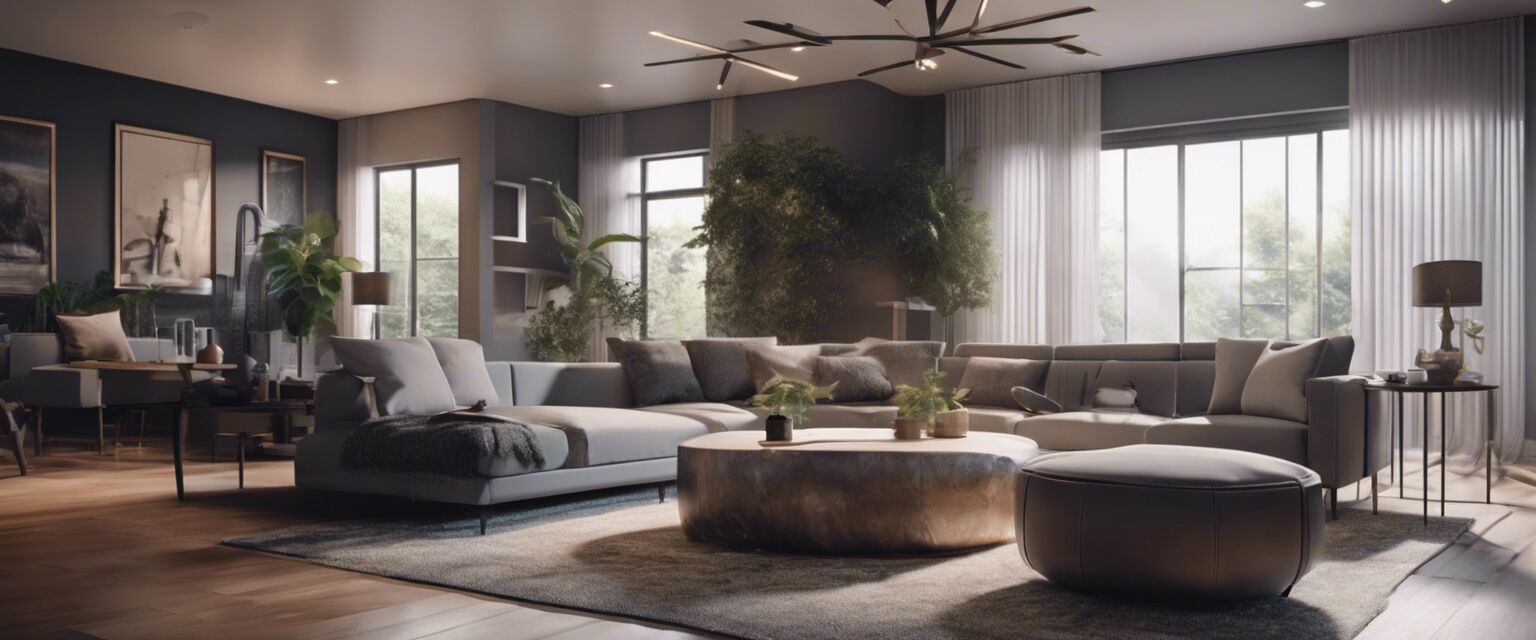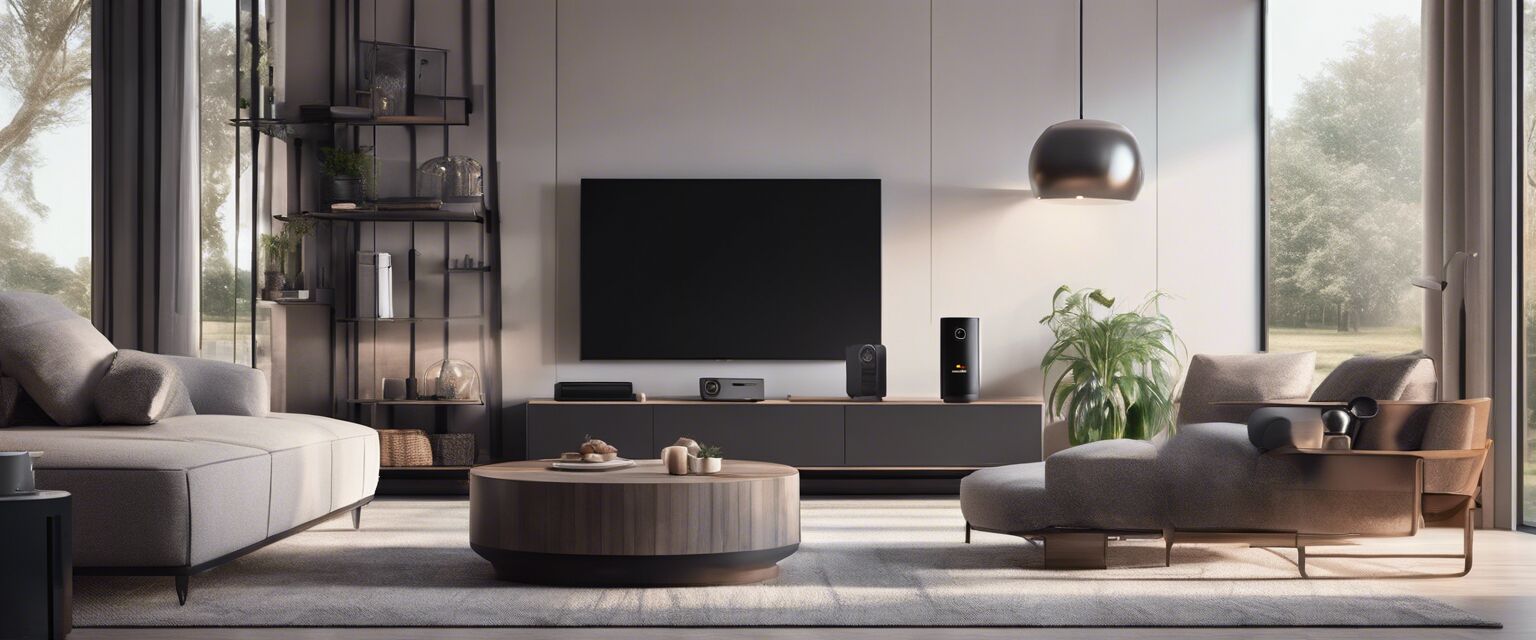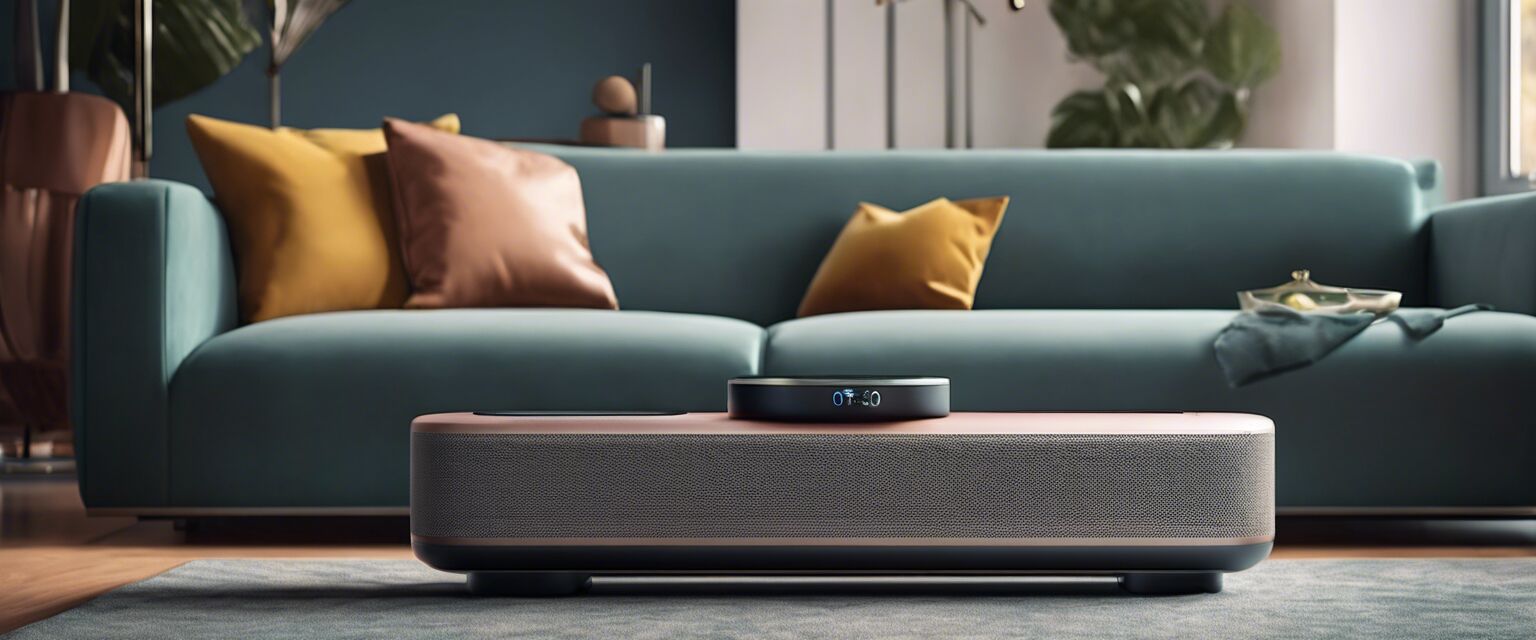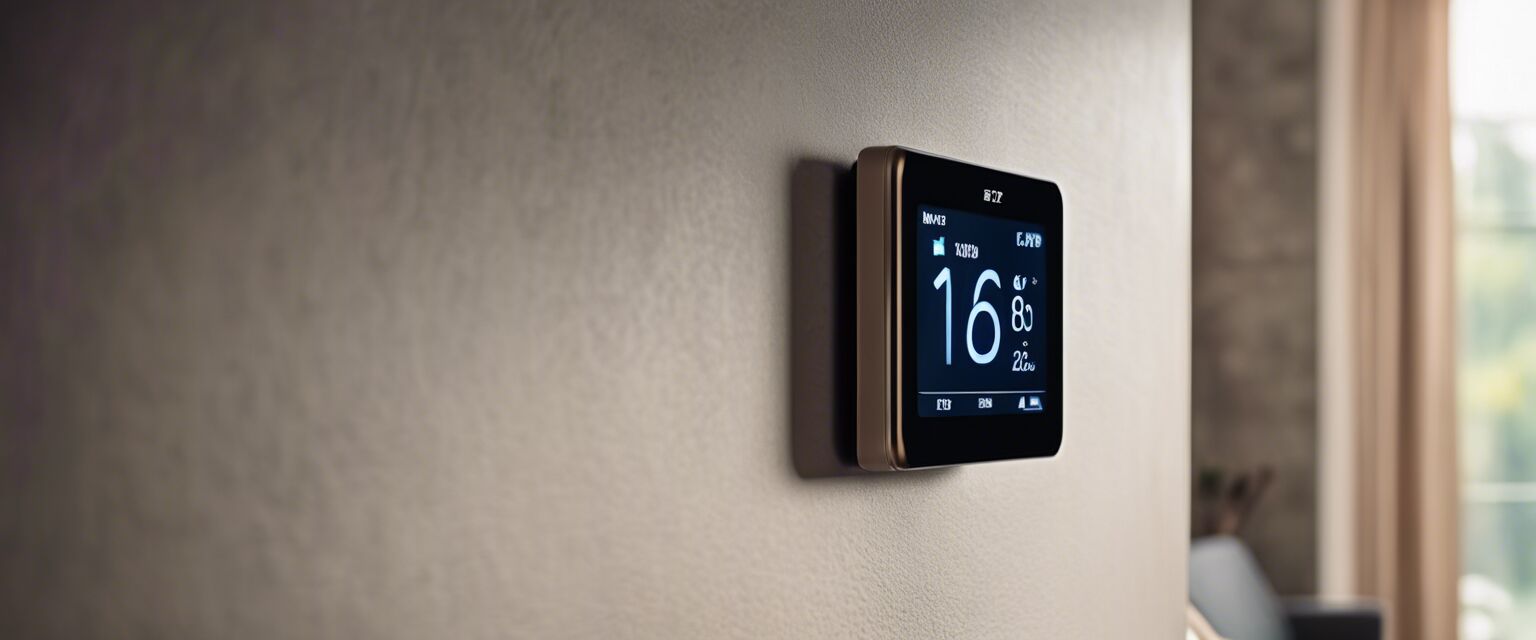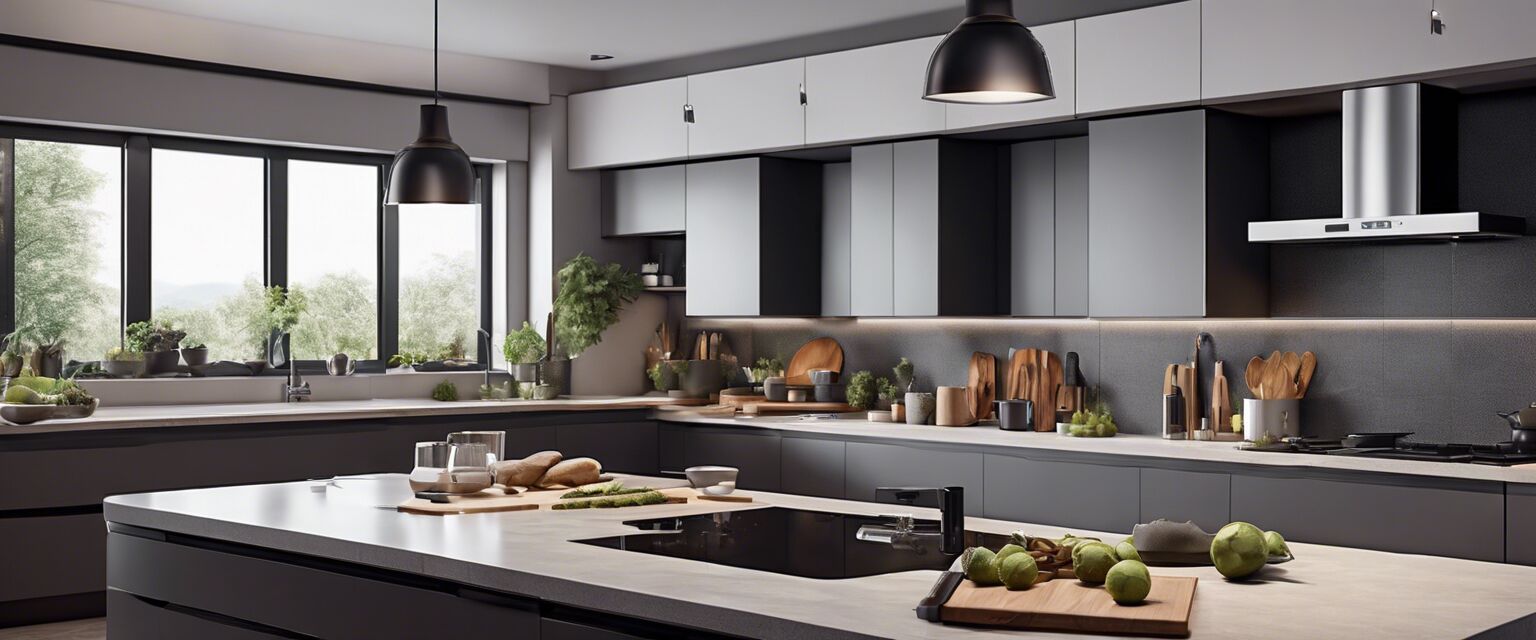
Smart Home Hubs & Controllers
Key Takeaways
- Smart home hubs serve as central control points for smart devices.
- They enhance home decor by integrating technology seamlessly.
- Compatibility with various smart home devices is essential.
- User-friendly interfaces simplify the management of smart systems.
- Investing in quality hubs can lead to better home automation experiences.
In the world of smart home technology, hubs and controllers play a crucial role in enhancing both functionality and aesthetics. These devices not only streamline the management of various smart gadgets but also contribute to the overall decor of your home. In this guide, we will explore the features, benefits, and considerations for choosing the right smart home hub and controller.
What is a Smart Home Hub?
A smart home hub is a central device that connects and controls multiple smart home devices. It allows users to manage everything from lighting and security systems to climate control and entertainment systems through a single interface. Smart hubs can be standalone devices or integrated into other home systems.
Types of Smart Home Hubs
| Type | Description | Examples |
|---|---|---|
| Standalone Hubs | Dedicated devices designed solely for controlling smart home devices. | Samsung SmartThings, Hubitat Elevation |
| Integrated Hubs | Hubs integrated into other smart devices, such as speakers. | Amazon Echo, Google Nest Hub |
| Cloud-Based Hubs | Manage devices through cloud services, often requiring internet connectivity. | Apple HomeKit, IFTTT |
Benefits of Using a Smart Home Hub
- Centralized Control: Manage all your smart devices from one app.
- Automation: Set schedules and routines for your devices.
- Enhanced Security: Monitor and control security devices easily.
- Energy Efficiency: Optimize energy use with smart controls.
- Customization: Create personalized scenes and experiences.
Choosing the Right Smart Home Hub
When selecting a smart home hub, consider the following factors:
- Compatibility: Ensure it works with your existing devices.
- Ease of Use: Look for a user-friendly interface.
- Features: Check for automation capabilities and integrations.
- Support: Opt for brands with good customer support and community.
- Price: Compare prices and features for the best value.
Smart Home Controllers
Smart home controllers are devices or applications that manage smart home systems. While hubs connect devices, controllers provide the interface for user interaction.
Types of Smart Home Controllers
| Type | Description | Examples |
|---|---|---|
| Mobile Apps | Apps that control smart devices from your smartphone or tablet. | SmartThings, Apple Home |
| Voice Assistants | Use voice commands to control devices. | Amazon Alexa, Google Assistant |
| Wall Panels | Physical tablets or interfaces mounted on walls for control. | Control4, Crestron |
Integration with Home Decor
Smart home hubs and controllers can enhance your home decor by blending technology with style. Many modern hubs are designed to be aesthetically pleasing and can complement your homeâs interior design. Here are some popular ways to integrate smart technology:
- Smart Lighting: Use smart bulbs to create mood lighting that enhances your decor.
- Automated Window Treatments: Control curtains and blinds for privacy and decor.
- Smart Thermostats: Adjust the climate while maintaining an elegant look.
- Connected Security Systems: Stylish cameras and alarms that blend with your home.
- Smart Displays: Decorative screens that provide information and control in one place.
Popular Smart Home Hubs and Controllers
Here is a comparison of some popular smart home hubs and controllers:
| Device | Type | Compatible Platforms | Price Range |
|---|---|---|---|
| Amazon Echo | Integrated Hub | Alexa, SmartThings, Philips Hue | $99 - $199 |
| Google Nest Hub | Integrated Hub | Google Assistant, Philips Hue, Nest | $89 - $249 |
| Samsung SmartThings | Standalone Hub | SmartThings, Zigbee, Z-Wave | $69 - $299 |
| Hubitat Elevation | Standalone Hub | Zigbee, Z-Wave | $149 |
Tips for Beginners
Getting Started with Smart Home Hubs
- Start with a hub that is compatible with your existing devices.
- Experiment with different routines to find what works best for you.
- Utilize automation features to save time and increase efficiency.
- Join online communities for tips and troubleshooting advice.
- Regularly update your devices for optimal performance and security.
Conclusion
Smart home hubs and controllers are essential for anyone looking to enhance their home decor while enjoying the benefits of smart technology. By understanding the different types, benefits, and integration options, you can create a connected home that is both functional and stylish. Explore our category pages to learn more about automated window treatments, connected security systems, efficient space management gadgets, intelligent climate control, smart audio and visual setup, and smart lighting solutions to find the perfect additions to your home.
Pros
- Centralized control of all smart devices.
- Enhanced security and energy efficiency.
- Aesthetic integration with home decor.
- Automation capabilities for convenience.
- Wide range of compatible devices.
Cons
- Some hubs may have compatibility limitations.
- Initial setup can be complex for beginners.
- Dependence on internet connectivity for cloud-based hubs.
- Can be expensive depending on features.
- Potential security vulnerabilities if not updated regularly.
